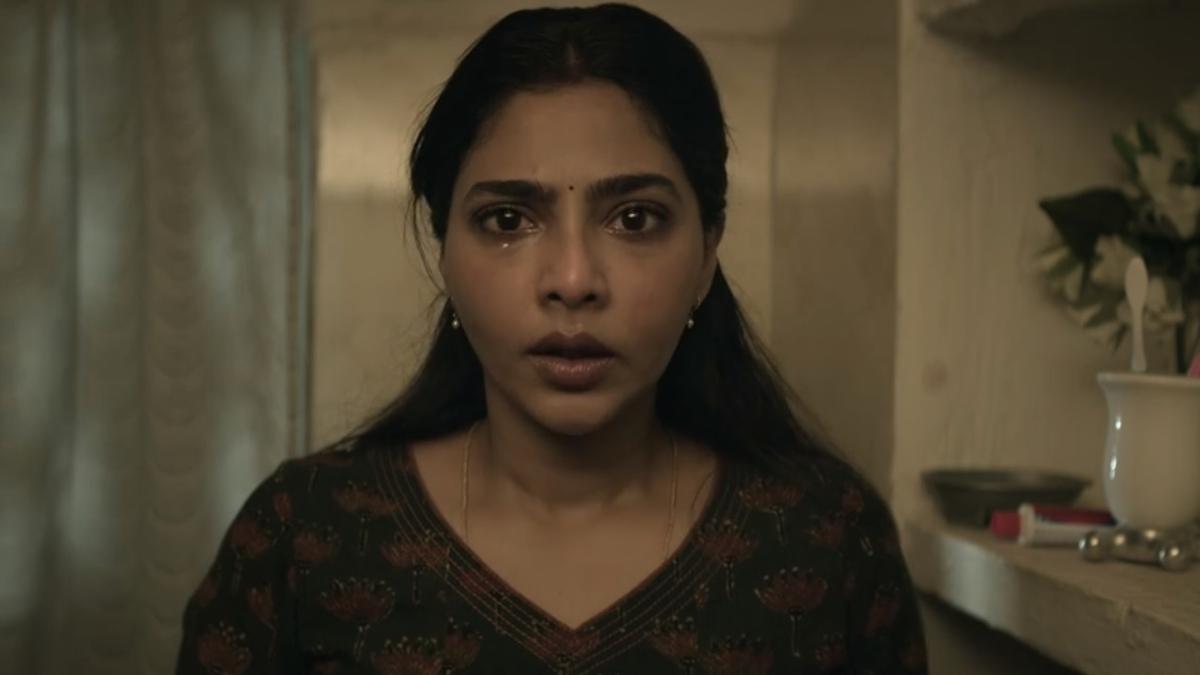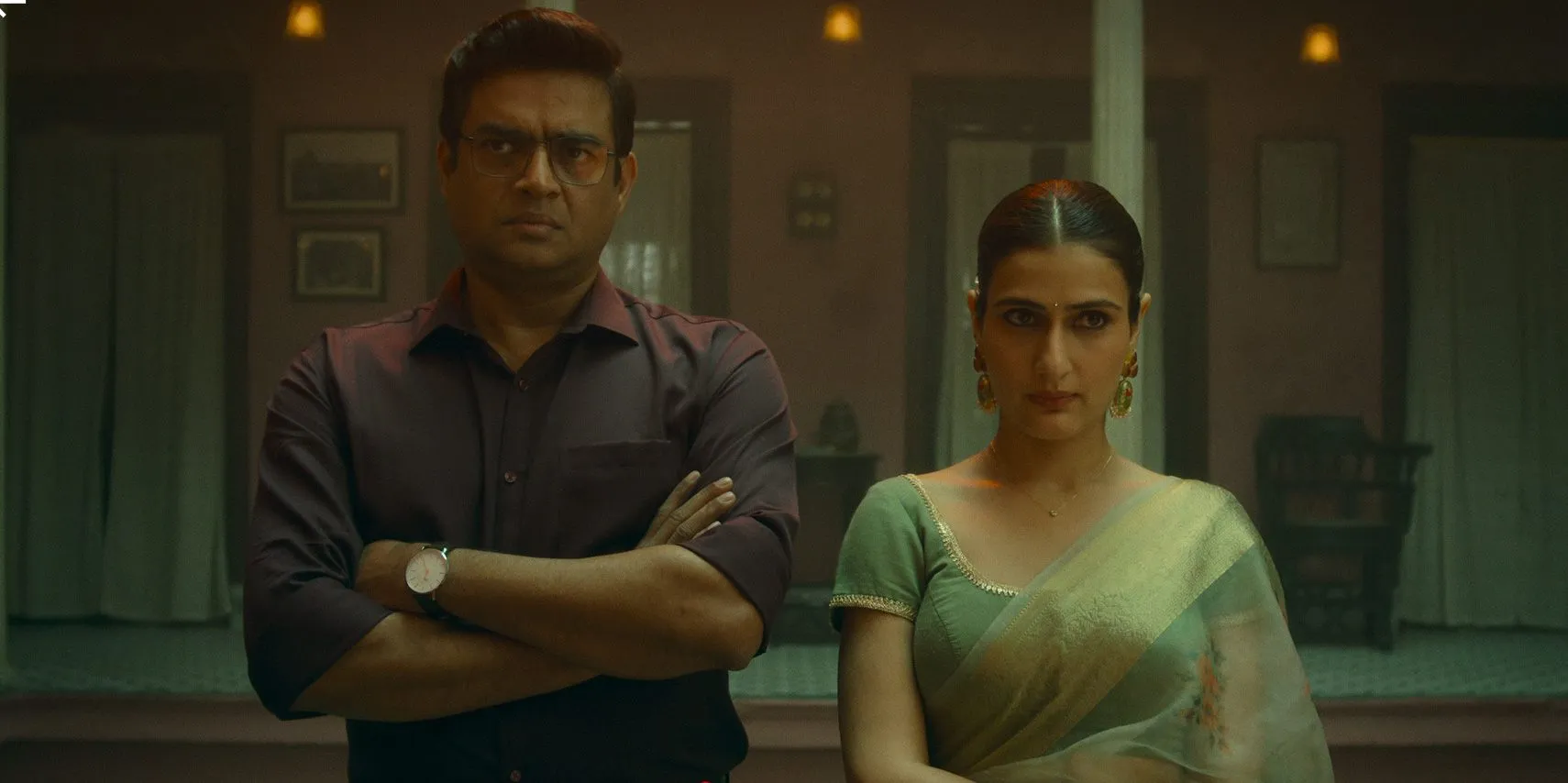Trigger Warning: Mentions of abuse and physical violence
Ammu (2022) starring Aishwarya Lekshmi and Naveen Chandra, tells the story of a young woman trapped in a marriage that is abusive at multiple levels. It deftly captures both her helplessness and her rage, her internalised guilt as well as her intuitive agency.
The film begins with Ravi (Naveen Chandra) and his family visiting Ammu’s house to finalise their wedding. We are told that these families have been neighbours for a long time.
Ravi’s father mentions how brave and fierce he remembers Ammu (Aishwarya Lekshmi) to be as a little girl, and can hardly believe how innocent she looks now after all these years. Ammu’s mother replies to this by saying that those days are behind her. “Now that she is becoming your daughter-in-law, being obedient is good,” she remarks proudly. All the guests laugh in unison, depicting how culturally normalised it is to expect a woman to be subservient after marriage.
In the initial days of their marriage, when Ravi asks Ammu what she wants as a wedding gift, she says that she wants a new sewing machine. When he asks her why she wants it, Ammu says that it is for her to make some extra money. Ravi instantly makes a face, shakes his head, and retaliates, “A man who lives off his wife’s money is no man at all.”
When Ammu asks him why he feels that way, he responds by saying that he promised her parents that he’d take care of her. “As a man, it is my duty to fulfil all of my wife’s needs,” he adds. We see early on that Ravi is a man who firmly believes in traditional gender roles in a marriage, and as the film progresses, goes to extreme lengths to maintain this uneven power dynamic.
When Ravi starts emotionally abusing Ammu, and her parents come to visit her, she complains to her mother, Kalpana, that she shouldn’t have been married off so early.
“So soon?” her mother exclaims. “You are 25. If we’d waited any longer, it would’ve been your diamond jubilee.” Patriarchy operates in insidious ways such as this, always needing to put women in their rightful place as ‘wives’ and ‘mothers,’ regardless of whether they are happy or ready for these roles. No matter how content she may be with her life, an independent, single woman is always an aberration in the patriarchal world.
The multiple levels of abuse faced by Ammu
What starts as a picture of perfect marital bliss rapidly descends into an abusive nightmare for the film’s eponymous protagonist. Ammu tries hard to perfect the role of a wife – feeding her husband hot dosas, cleaning and managing their house, and waiting on him hand and foot. But Ravi is never satisfied.
One day, she decides to bring Ravi lunch at his workplace, the local police station. He is overjoyed, even his colleagues appreciate his wife’s love and dedication towards him. The next day, he expects it again. He calls Ammu, disgruntled, letting her know that he is waiting for his food. When she is late in bringing it to him, he throws a tantrum and does not eat at all. This is the beginning of a toxic pattern that keeps getting worse and worse, ultimately unravelling their marriage completely.
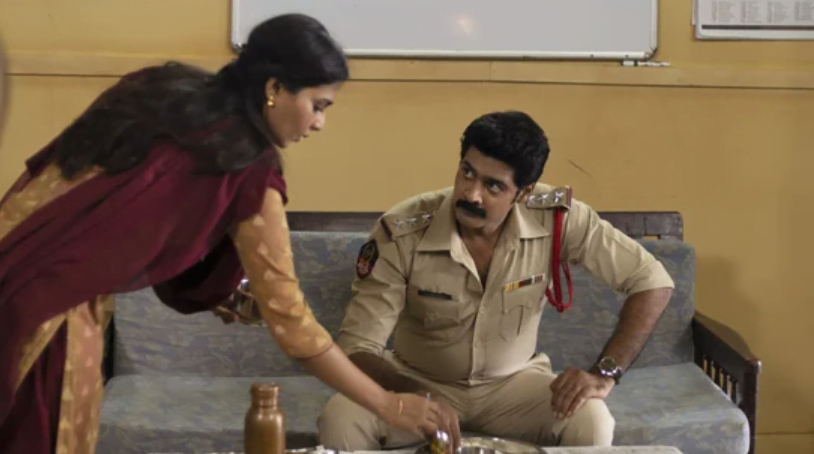
Ravi also exhibits controlling tendencies. When Ammu asks him if she can go out for a film with her friend, he denies her furiously. He belittles her in front of his colleagues. When she expresses her displeasure about it, he abandons her in the middle of the road to walk home alone. When she gets home and they get into an argument, he throws his plate of food into a wall.
Ammu is stunned, and he tries to pacify her with a classic abuser tactic – to shift the blame for his actions onto the victim. “I got annoyed because you threatened to not come back home… Don’t you know it would hurt me if you say such things? That is why I couldn’t control my rage,” he explains.
When her parents come over to their house for the first time, Ravi is annoyed with them. He threatens to leave midway, and Ammu pleads with him not to. Their argument gets heated and he slaps her. The first thing he does after that is to look around and check if anyone saw him slapping Ammu, because abusive men work desperately to maintain their public persona of an ideal husband – provider and protector, as they continue to abuse their victims in isolation.
There is a sequence where Ammu tells her gynaecologist that she does not want to have a baby yet, but she can’t disclose that to Ravi. The doctor advises her to take contraceptive pills. She takes the pills to avoid pregnancy, but at a later point in the film, it is revealed that she is pregnant. The only way for that to have happened despite her being on the pill, is if Ravi swapped her medicine with a placebo. This sort of reproductive violence is also emblematic of a deeply rooted patriarchal belief that women should not be entitled to agency, even over their bodies.
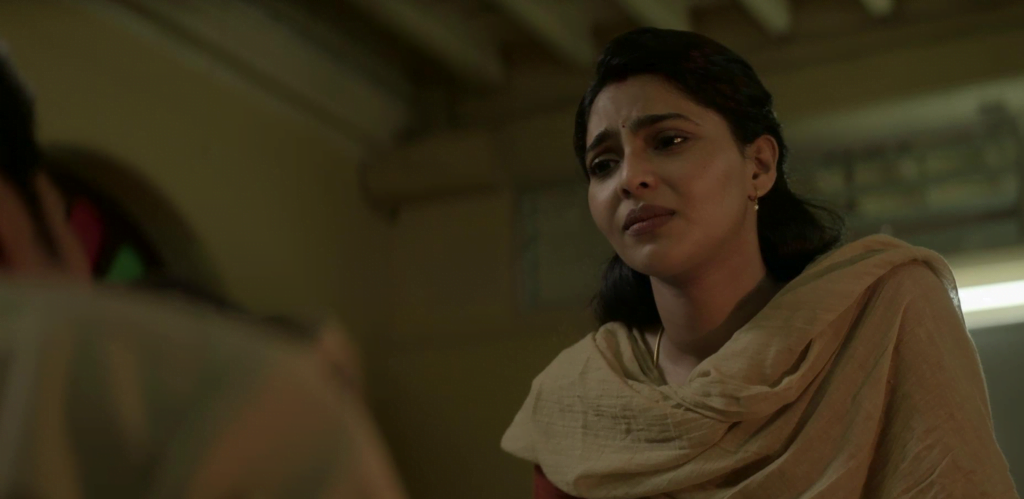
The emotional, physical and reproductive abuse continues throughout the film, growing in intensity, culminating at a point when Ravi threatens to kill Ammu. “Would you kill me despite knowing that I’m pregnant?” she asks him.
“Just because you are carrying my baby, you think I won’t harm you? I will sleep with another woman if I want a baby,” Ravi replies nonchalantly. He exemplifies one of the basic tenets of patriarchy – at a structural level, women are nothing more than reproductive vessels.
Women and intergenerational trauma
When Ammu reveals to her mother that Ravi had hit her, the first question Kalpana asks Ammu is not whether she is alright, but what she did for him to slap her. “Why do you assume it was something I did?” Ammu asks, befuddled. “Because he is a good person,” the mother answers, typical of our culture’s victim-blaming mindset.
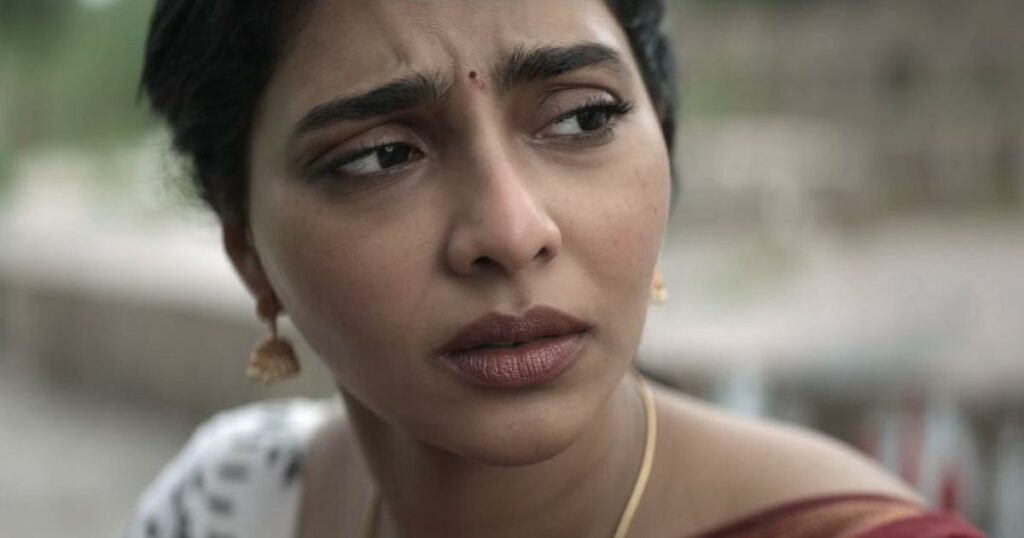
Mother and daughter sit in silence for a while, not knowing what to say. Kalpana then proceeds to tell Ammu what her mother said to her, when Ammu’s father had once hit her, “Men hit their wives. You are not the first woman to go through this, and you will not be the last. It will likely happen again to you. Men are entitled to anger, because they go to work and lead stressful lives. Where else can they take out their frustration? If you want his love, you must bear the pain that comes with it.”
The monologue encapsulates toxic relationship dynamics perfectly – the infantilisation of men, the trivialisation of brutality against women, and the glamorisation of suffering and abuse as a true passion. Women have passed down this pain and trauma to their daughters for generations, as Kalpana narrates.
But the very next moment, she does something different and breaks this generational cycle. She confesses to Ammu that it is not what her mother should’ve said. Kalpana encourages Ammu to do what she feels is right for her own life and happiness, “A man should never raise his hand at his wife. And if he does, the woman need not continue to live with him for another moment.”
The film concludes with Ammu taking back her power. Midway through the film, she tries to complain to the police about Ravi, but he intimidates her in a public space and forces her to rethink her decision. In a role reversal of sorts, the film ends with her turning in Ravi to the authorities and humiliating him publicly – the same treatment he meted out to her day in and day out. Ammu ends with the simple act of the protagonist preparing to go out for lunch with her friend Linny, a political act for her after breaking out of the violent shackles of her abusive marriage.
About the author(s)
Divyani is a media and research professional with a background in critical cultural theory. Her core interest areas are digital cultures, sexuality, and mental health. She loves annoying her cat and a good cup of coffee.
